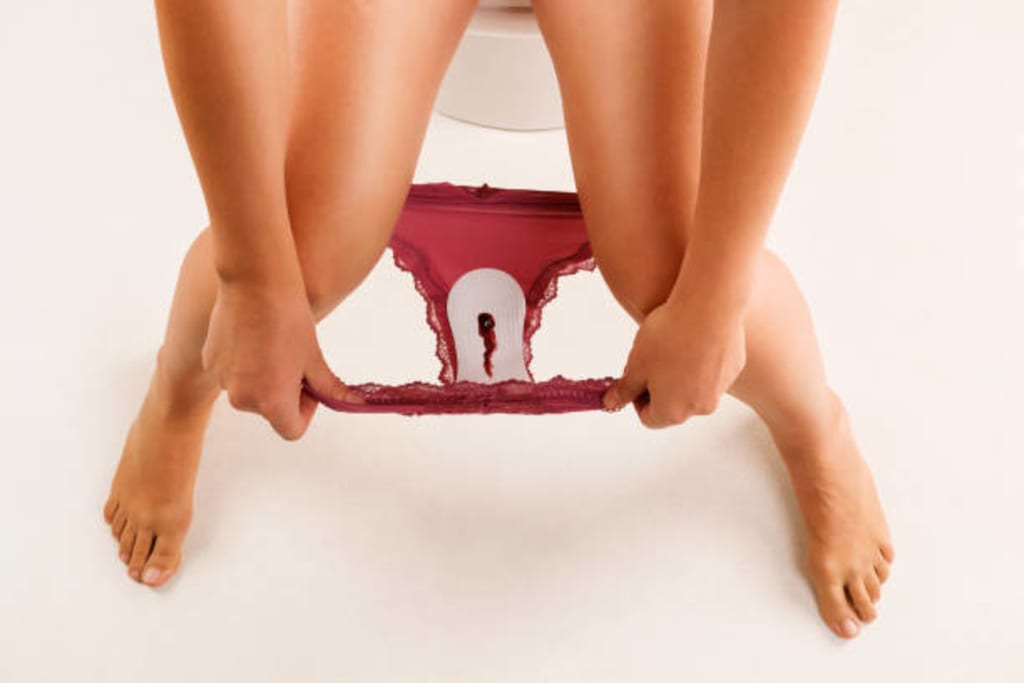Menstruation 101: Understanding the Basics
Menstruation, often referred to as a “period,” is a natural and essential part of a person with a menstrual cycle’s life. It involves the monthly shedding of the uterine lining, accompanied by hormonal changes that can affect both physical and emotional well-being. While menstruation is a normal bodily process, it can sometimes be challenging to manage, leading to discomfort and inconvenience. In this article, we will explore the do’s and don’ts of menstruation, providing practical tips and essential information to help individuals have a healthier and more comfortable menstrual experience.

Before delving into the do’s and don’ts, let’s take a moment to understand the basics of menstruation:
1. What is Menstruation?
Menstruation is the natural process that occurs in individuals with a menstrual cycle, typically starting during puberty and continuing until menopause. During this monthly cycle, the uterus prepares for pregnancy by thickening its lining. If pregnancy does not occur, the uterus sheds this lining, leading to vaginal bleeding known as menstruation.
2. Menstrual Cycle Length
The length of the menstrual cycle varies from person to person but typically lasts around 28 days, although it can be shorter or longer. The menstrual cycle is counted from the first day of one period to the first day of the next.
3. Menstrual Flow
The menstrual flow can vary in color, consistency, and volume. It usually lasts between three to seven days, but again, this can vary from person to person.
Now that we have a basic understanding of menstruation, let’s explore the do’s and don’ts for managing it effectively and promoting overall well-being during this time:
The Do’s:
1. Do Track Your Menstrual Cycle
Keeping track of your menstrual cycle can be immensely helpful for understanding your body’s patterns and anticipating your periods. You can use a calendar, a menstrual tracking app, or a journal to record the start and end dates of your periods, as well as any symptoms or changes you experience during each cycle.
2. Do Practice Good Hygiene
During menstruation, maintaining good hygiene is essential. Change your sanitary products regularly, whether you use pads, tampons, menstrual cups, or period panties. Wash your hands before and after handling menstrual products to prevent infections. Additionally, ensure you shower regularly to stay fresh and clean.
3. Do Choose the Right Menstrual Products for You
There is a wide range of menstrual products available, and choosing the right one depends on your comfort, flow, and lifestyle. Experiment with different options, such as pads, tampons, menstrual cups, or period panties, to find what works best for you. Consider eco-friendly options to reduce your environmental impact.
4. Do Eat a Balanced Diet
Maintaining a balanced diet during menstruation can help alleviate symptoms and boost your energy levels. Include a variety of nutrient-rich foods, such as fruits, vegetables, whole grains, lean proteins, and healthy fats, in your diet. Stay hydrated by drinking plenty of water.
5. Do Manage Menstrual Pain
Menstrual pain, also known as dysmenorrhea, is a common symptom for many individuals. Applying a heating pad or taking a warm bath can help soothe cramps. Over-the-counter pain relievers, such as ibuprofen or acetaminophen, may also provide relief. If pain is severe or persistent, consult with a healthcare professional.
6. Do Get Adequate Rest
During menstruation, your body is undergoing hormonal changes that can lead to fatigue. Make sure to get enough rest and prioritize sleep to support your overall well-being.
7. Do Stay Active
Engaging in regular physical activity can help manage menstrual symptoms and improve mood. Light exercises like walking, yoga, or swimming can be beneficial. Listen to your body, and if you feel fatigued or unwell, take it easy.
8. Do Practice Self-Care
Menstruation can bring about a range of emotions, and practicing self-care can help you navigate this time with greater ease. Engage in activities that bring you joy, such as reading, meditating, spending time with loved ones, or pursuing hobbies.
9. Do Address Menstrual Challenges with Your Healthcare Provider
If you experience severe or unusual symptoms during menstruation, such as heavy bleeding, irregular cycles, or intense mood swings, don’t hesitate to discuss them with your healthcare provider. They can help identify any underlying health issues and provide appropriate guidance and treatment.
10. Do Educate Yourself and Others
Knowledge is empowering. Educate yourself about menstruation, and don’t be afraid to educate others. Breaking the stigma around periods and promoting open conversations can help create a more supportive and understanding environment for everyone.
The Don’ts:
1. Don’t Skip Meals
Skipping meals during menstruation can lead to decreased energy levels and worsen symptoms. Make sure to eat regular, balanced meals to nourish your body and support overall well-being.
2. Don’t Overindulge in Caffeine and Salt
Caffeine and excessive salt intake can contribute to bloating and worsen menstrual discomfort. Limit your consumption of caffeinated beverages and salty foods during your period.
3. Don’t Ignore Your Body’s Signals
Pay attention to your body’s signals and rest when needed. Pushing yourself too hard during menstruation can lead to increased fatigue and discomfort.
4. Don’t Use Unsanitary Menstrual Products
Ensure you use clean and sanitary menstrual products to avoid the risk of infections. Always follow the manufacturer’s instructions for use and disposal.
5. Don’t Be Afraid to Seek Support
If you are experiencing challenges or discomfort during menstruation, don’t be afraid to seek support from friends, family, or healthcare professionals. Menstruation is a natural process, and you don’t have to navigate it alone.
6. Don’t Engage in Strenuous Exercise if You’re Not Feeling Up to It
While staying active is beneficial, don’t push yourself to engage in strenuous exercise if you’re not feeling up to it during menstruation. Opt for gentle activities that make you feel comfortable and energized.
7. Don’t Use Menstruation as an Excuse to Limit Yourself
Menstruation is a normal part of life, and it doesn’t have to limit your activities or accomplishments. With proper self-care and management, you can continue to engage in your regular routine.
8. Don’t Ignore Changes in Menstrual Patterns
If you notice significant changes in your menstrual patterns, such as irregular cycles or unusually heavy bleeding, don’t ignore them. Reach out to your healthcare provider for an evaluation.
Conclusion
Menstruation is a natural and essential aspect of the human reproductive system. By following the do’s and don’ts outlined in this article, individuals can better manage their menstrual cycles and promote overall well-being during this time. It’s crucial to prioritize self-care, maintain good hygiene, and seek support if needed. Embracing open conversations about menstruation and educating oneself and others can contribute to breaking the stigma surrounding periods and creating a more supportive and understanding society for all. Remember that every menstruating person’s experience is unique, and it’s essential to listen to your body and tailor your approach to menstruation accordingly.





Comments
There are no comments for this story
Be the first to respond and start the conversation.